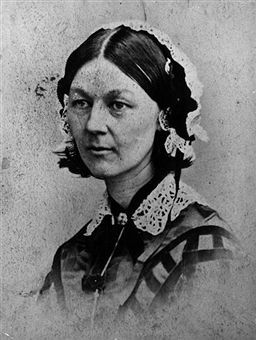 Was Florence Nightingale, the lady with the lamp, really a mean-tempered and
manipulative old hag who killed huge numbers of British soldiers through crass ignorance? And was she, furthermore, “sexually neurotic”? This is the view that has been portrayed of the
woman by a number of recent BBC films, provoking a bunch of nursing academics to write to the BBC Chairman Lord Patten insisting that the films be withdrawn
Was Florence Nightingale, the lady with the lamp, really a mean-tempered and
manipulative old hag who killed huge numbers of British soldiers through crass ignorance? And was she, furthermore, “sexually neurotic”? This is the view that has been portrayed of the
woman by a number of recent BBC films, provoking a bunch of nursing academics to write to the BBC Chairman Lord Patten insisting that the films be withdrawn
It is certainly true that Nightingale is no longer revered in the same way as when I was at school. Readers of this blog will be all too familiar with Nightingale’s rival, Mary Seacole, a woman who also helped out in the Crimean War but has the distinct advantage of being about the only black person in Britain at the time. As a consequence there are hospital blocks and university buildings and quite possibly entire towns named after Ms Seacole who, more than a century after her death, is charged by white liberals with the task of single-handedly making black people feel proud of their history in this country. But it seems to me that Florence is proving the more enduring role model for nurses today: ignorant of the basics of hygiene and unpleasant to her charges.







Comments